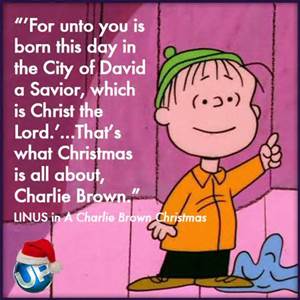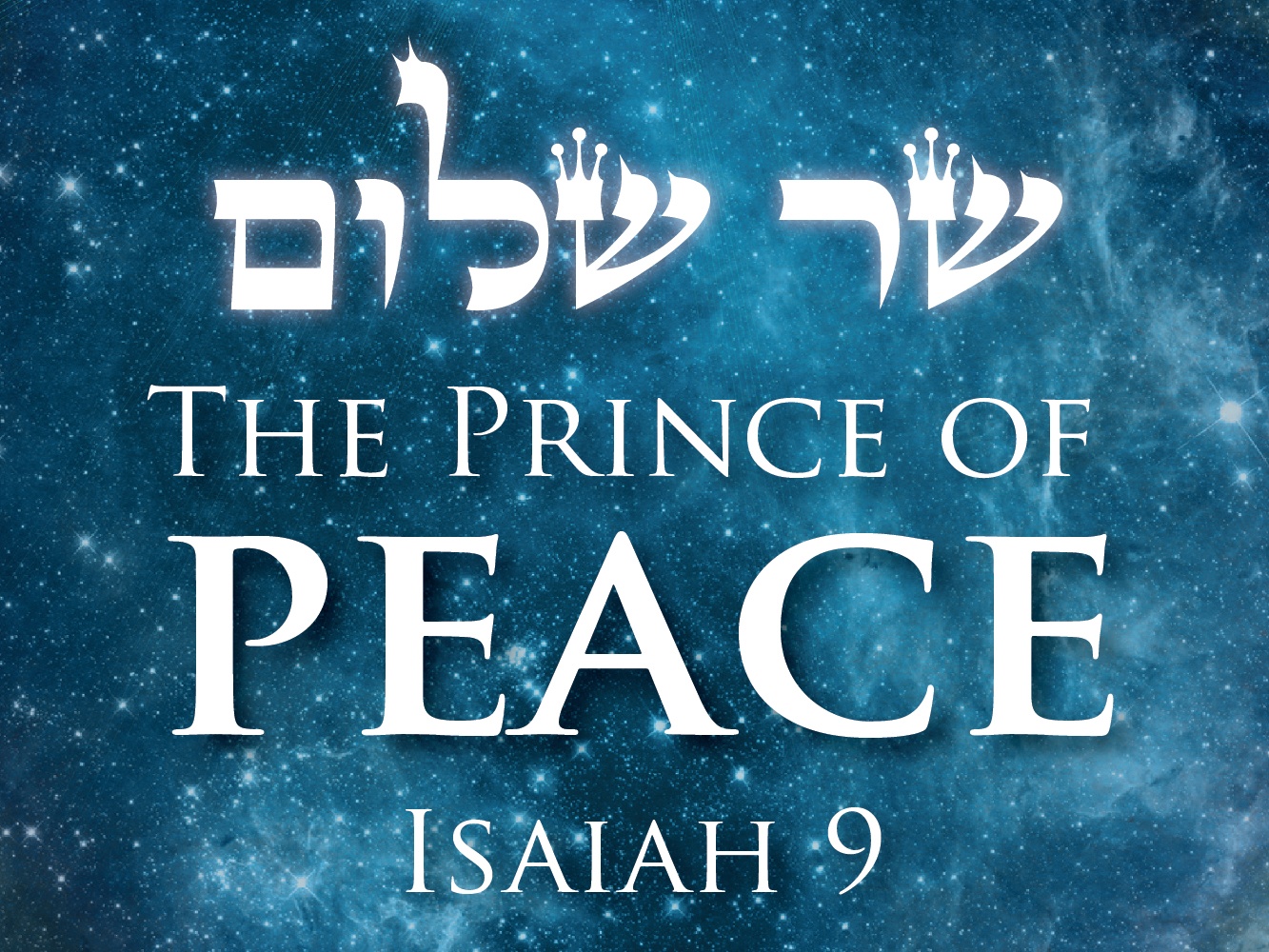 If you are like me, you love the Christmas classics that come on television every December. One of my favorite Christmas shows is Charles Schultz Merry Christmas Charlie Brown! The pivotal point of the cartoon is when Charlie Brown shouts out, “Does anyone know what Christmas is all about?” Linus, carrying his ever trusted blanket, then begins a monologue describing Christmas quoting Luke 2:8-14.
If you are like me, you love the Christmas classics that come on television every December. One of my favorite Christmas shows is Charles Schultz Merry Christmas Charlie Brown! The pivotal point of the cartoon is when Charlie Brown shouts out, “Does anyone know what Christmas is all about?” Linus, carrying his ever trusted blanket, then begins a monologue describing Christmas quoting Luke 2:8-14.
As Linus reads from Luke’s Gospel, one is left with the sense of peace as the angels proclaim, “Glory to God in the highest, and on earth peace, goodwill toward men” (Luke 2:14, NKJV).[1] The Bible greatly marks the Messiah with the sense of peace. Isaiah describes the Messiah as the “Prince of Peace” (Isaiah 9:6).[2]
But many will ask, “If Jesus is the ‘Prince of Peace,’ then why is it that the world remains so violent and chaotic?” Shouldn’t the Prince of Peace have brought peace to the earth and goodwill to all humanity? Does this discredit Jesus of Nazareth as the Messiah? No! Why? For the three reasons given below.
Jesus’ statement on a “sword.”
Many in Jesus’ day thought that the Messiah would come to bring peace on earth. However, Jesus confronts this idea in saying, “Do not think that I have come to bring peace to the earth. I have not come to bring peace, but a sword” (Matthew 10:34). NT scholar Craig Keener notes that
“It was normally believed that there would be great suffering before the end, and that the Messiah would lead his people in a triumphant war, followed by a time of peace. Jesus assures his listeners that the promised era of peace is yet some time off and goes on to explain the nature of the current sufferings and conflict” (Keener 1993, 74).
Jesus notes the division that would occur in following him. Even in one’s family, a person may find a commitment to Christ by one and rejection by another. Jesus concludes in saying that “Whoever finds his life will lose it, and whoever loses his life for my sake will find it” (Matthew 10:39).
The point is: due to the nature of Christ’s work, peace will not be brought to earth until a later time. However, the work that Christ would bring about ultimate peace. But does this mean that one cannot experience peace in the here and now?
Jesus provides peace in this life.
Jesus does provide peace to the believer now. But, one will certainly note the presence of great turmoil in the world. So, how does the believer have peace?
The believer has spiritual peace that emanates from the Prince of Peace. Jesus said to his disciples, “Peace I leave with you; my peace I give to you. Not as the world gives do I give to you. Let not your hearts be troubled, neither let them be afraid” (John 14:27). Jesus also said, “Come to me, all who labor and are heavy laden, and I will give you rest. Take my yoke upon you, and learn from me, for I am gentle and lowly in heart, and you will find rest for your souls” (Matthew 11:29). Jesus provides inner peace for one facing the most horrific of outer turmoil. Does this mean that the world will never experience peace?
Jesus’ end deliverance of peace and the application of “Prince of Peace.”
If the preceding is true, then what did Isaiah mean when he called the Messiah the “Prince of Peace”? Was it a metaphor for the spiritual peace provided by the Messiah? Actually, no. Isaiah goes on to say, “Of the increase of his government and of peace, there will be no end” (Isaiah 9:7). Rydelnik explains that “The child will fulfill the promise of the Davidic covenant (cf. 2Sm 7:12-16), and establish the messianic kingdom through justice and righteousness” (Rydelnik & Vanlaningham 2014, 1025).
Thus, the passage looks to the end when the Messiah would usher in a final time of justice and peace. This is the same glimpse afforded to the believer in the book of Revelation. Jesus’ ultimate demonstration of peace will come at the end of time when sin is conquered, death is defeated, and peace will reign eternally.
Conclusion
The recitation of Linus in Merry Christmas Charlie Brown! provides the viewer with the message of Christmas. Christ has come to provide peace. In a sense, Christ has already provided peace to the believer through the comfort of his presence which steers the believer through even the most tumultuous waters. However, the ultimate fulfillment of peace will come when Christ returns.
Christ came once before. He is promised to come again. When he does, peace will reign supreme. Hold on to the peace of Christ! Hold on to the Prince of Peace!
© December 21, 2015. Brian Chilton.
Sources Cited:
Keener, Craig S. The IVP Bible Background Commentary: New Testament. Downers Grove: IVP Academic, 1993.
Rydelnik, Michael, and Michael Vanlaningham, eds. The Moody Bible Commentary. Chicago: Moody Bible Publishers, 2014.
[1] Scriptures marked NKJV come from the New King James Version (Nashville: Thomas Nelson, 1982).
[2] Unless otherwise noted, all Scripture comes from the English Standard Version (Wheaton: Crossway, 2001).





